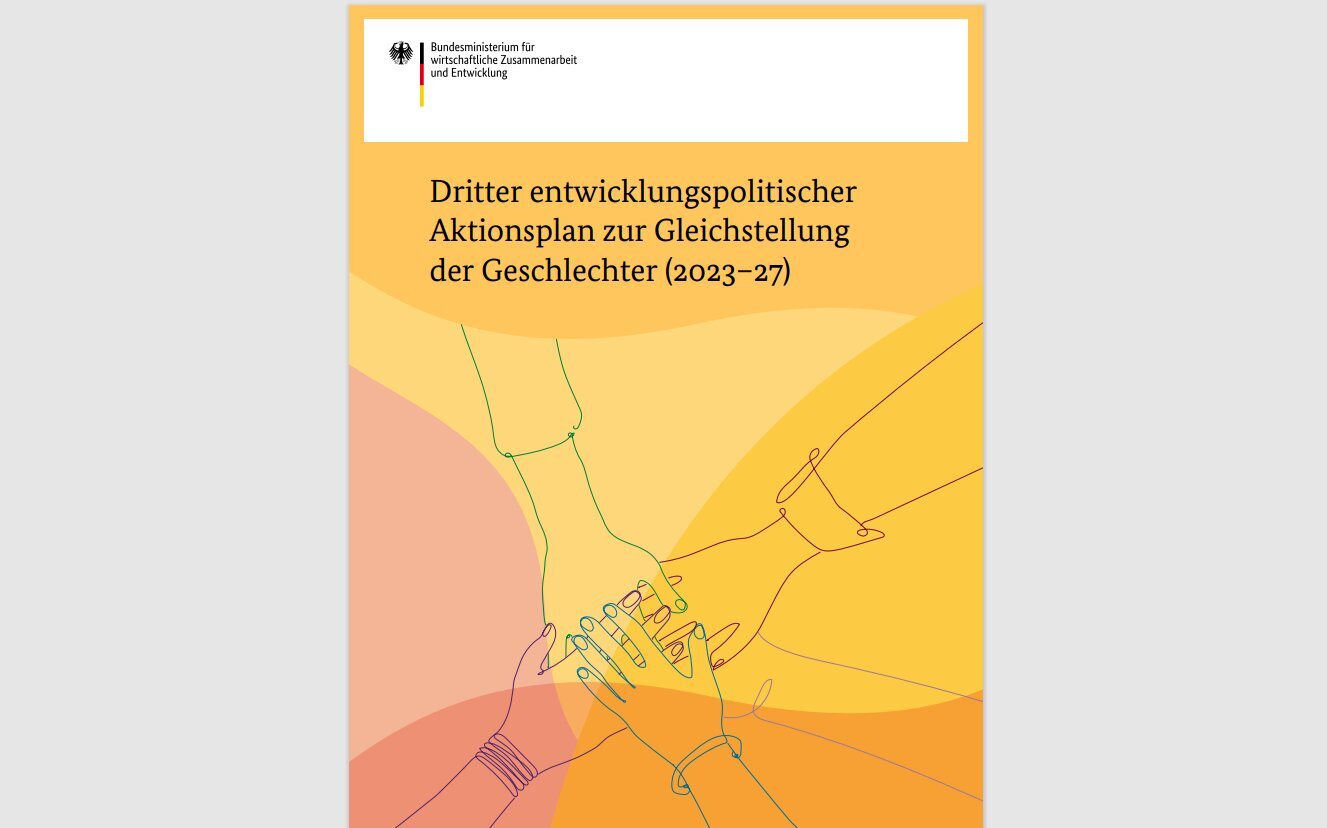Implementing feminist development policy - the new BMZ Gender Action Plan provides answers
An article by Julia Bayer-Cremer

Back in March last year, the German Federal Ministry for Economic Cooperation and Development (BMZ) published its new strategy for a Feminist Development Policy (FEP). The aim of the FEP is to dismantle discriminatory structures - for women and girls as well as other marginalised groups. In December 2023, the BMZ set out how this goal is to be achieved in its "Third Development Policy Action Plan for Gender Equality".
The action plan is based on the "3Rs" defined in the FEP: gender-related injustices and discrimination are to be reduced by strengthening the rights, resources and representation of women and marginalised groups. To achieve this, the third development policy gender action plan contains concrete measures for the years 2023 to 2027.
It is intended to provide guidance on how feminist development policy can be implemented in practice. The main aim is to make the feminist core elements visible, measurable and, above all, replicable.
The action plan defines six priority areas in which the 3Rs are to be implemented, but these are not seen as exhaustive. The goals and principles of feminist development policy are to be incorporated into all areas of German development policy and measurements.
The 6 priority themes of the BMZ's Third Gender Action Plan
III Strengthening rights, resources and representation
- Peace and social cohesion
- Gender-based violence
- Health-sexual and reproductive health and rights
- Economic and social empowerment, participation and access to good work
- Just transition
- Food security, agriculture and rural development
Relevance of the Gender Action Plan for our work in the INA
INA is committed to working with stakeholders from the private sector, civil society, academia and politics to achieve greater sustainability in global agricultural supply chains and improve the living conditions of smallholder farmers. In view of the goals and measures defined in the action plan, the priority area of "Economic and social empowerment, participation and access to good work" is particularly relevant to our work. The BMZ is committed to the gender-equal design of global value chains and economic partnership and free trade agreements. The BMZ also wants to counteract the gender gap in wages and is committed to closing the gender pay gap. The aim is to promote fair economic participation. In addition, the core labour standards of the International Labour Organization (ILO) are to be implemented to enable decent work for formal and informal workers.
"Food security, agriculture and rural development" is another priority area in the Gender Action Plan that is particularly relevant to the work of the INA. The BMZ aims to support the equal representation of women in local expert networks, agricultural cooperatives and other forms of organization. This chapter also includes the promotion of decent work, living incomes and fair wages in agricultural supply chains - especially for women.
